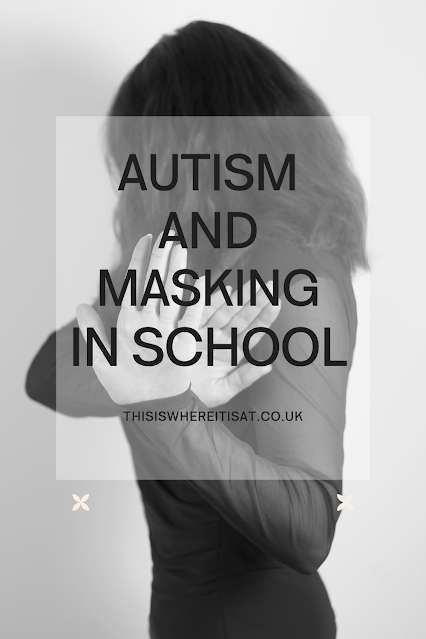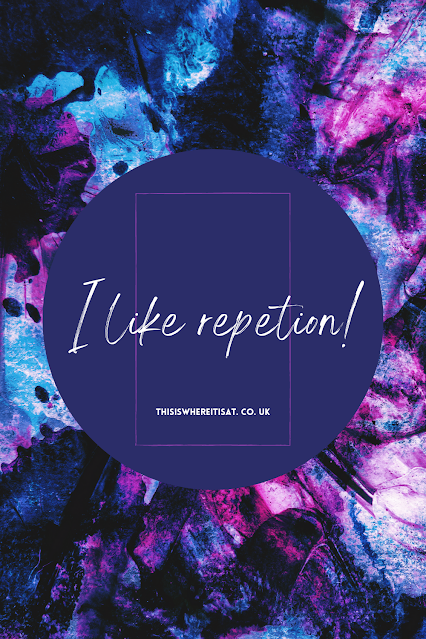Friday 5 January 2024
Protecting my autistic kids from their grandparent!
Monday 20 November 2023
Autism and masking in school
Friday 29 September 2023
Exploring the complex factors that influence Autism Spectrum Disorder
Monday 18 September 2023
Understanding Autism and sleep
Friday 1 September 2023
What are some common Autism traits.
Friday 2 June 2023
How to show respect to a person with autism.
Autism is a condition that impairs a person's capacity for interaction and communication.
What comes to mind when you think about autistic people? Is it a result of generalisations you may have heard?
It's critical to determine whether you have internalised ableism because it frequently has roots in other prejudices.
Recognise that you might be acting in ways that an autistic person might find uncomfortable. Numerous autistic people experience sensory problems due to various sounds, sensations, tastes, or sights.
Inform them formally if they are creating a commotion.
Don't be harsh about it if it isn't a good time to talk! You don't want to discredit somebody for having strong opinions.
3. Educate yourself.
Find out more about autism. Due to its extreme complexity, autism is frequently referred to as a spectrum disorder.
Take care when choosing your sources. Since there is a lot of misunderstanding about autism, it's crucial to use resources from nonprofits and organisations that concentrate primarily on autism.
Speak to those who are autistic in your life.
Consider how you can assist them more effectively! It's crucial to help them just like you would any of your friends, whether lending a sympathetic ear about issues related to their disease or simply treating them like any other person.
Cheers for reading X
Friday 10 March 2023
I like repetition!
Friday 16 December 2022
Autism and Christmas
I am not very good with changes and I always see Christmas as a massive change. It doesent matter whehter it is good or bad it is still change and something that I have to deal with every year, well until I am dead of course.
I do love seeing how my children are happy although my eldest as he is getting older and has autism is starting to struggles as well more and more.
Living in a city means it is always busy but on Christmas day it is silent or very, very, very quiet. which I am not going to moan because I actually enjoy it.
However, to help deal with sticking to some routine and change I use a diary to write down what is happening. I also do a relaxed schedule on Christmas day just to help me keep calm.
I don’t want to be a pain and appreciate he has social needs just as much as my own needs. So, he can have social gatherings, I do stay for a period but sometimes I need some time alone because it gets chaotic.
This also helps my autistic son; he normally comes with me for some time out on the bed in the dark, which for me with fewer stimuli around gives my brain a break.
I don’t like ceiling decorations they make me feel claustrophobic so as long as I have a safe space which is my bedroom where I go when I need a break that is what works for us in my home.
I always have vivid memories of being a child and hating those ceiling decorations and now it makes total sense for how I felt which at the time when I didn’t know about autism it was difficult to get my head around.
Friday 28 October 2022
How to calm an autistic person down when they are anxious.
Friday 14 October 2022
Autism and things I cannot live without.
This post is all about the things that help a little to make my life a bit more manageable with dealing with being autistic in a neurotypical world. Some of the things have helped calm me down when I am emotional trauma, changed or uncertain.
It doesn't have to be big or fancy but it is enough to have an impact on my mood and calm me down when I most need it.
6 things that help make my autistic life more manageable.
1. Noise-cancelling headphones.
I am not talking about the headphones kids wear (though they are good) I wear the ones that drown out all the noise and I can also listen to music or podcasts.
This has helped me when I am out and about in supermarkets or need to get somewhere on public transport. I can switch off into my little universe when I get overstimulated with the noise, business and lights.
I can zone out and gives me a pause to just chill and rebalance my senses again as it were. Having this opportunity to take time out from the outside world by putting headphones on means can help reduce the risk of having a meltdown as I don’t like them, especially in public places as I hate attention on myself and very private person when it comes to emotional stuff so much prefer to scream some quiet away from everyone.
2. Google Maps.
Google maps for me are a godsend before this was available on phones I used to hate going anywhere new or didn’t know that was familiar to me as I would get lost and get very anxious.
Having Google maps give me the security blanket of knowing where to go, and what buses to catch and not worrying if I do get lost. It means I can explore more like taking my kids to a new park without fear as much, I still get anxious, but I can analyse where we are and work out where to go on the map.
Although when I do get too anxious I still can't manage to read the instructions but have learnt to take myself away from the noisy environment to allow myself time to calm down to work it out or if ever a situation got too much for me to handle I do have my husband who has a car or there is an uber, so I always have a plan b which again gives that security so feel less anxious because whatever happens it can be resolved one way or another.
3. My bed.
It is my safe space for when I am feeling scared or want to shut down I like to escape there and hide in the corner away from it all. It is where I go to relax and wind down, I want to put my headphones on and listen to music or read a book. I like it when I have my window open and the breeze flows around me.
4. Lava lamp/fairy lights.
I love low lighting and moving lights, it calms me down and hence why I have included my lava lamp and fairy lights. They just bring a relaxing ambience to my room and help calm me down and help especially when I am having a meltdown.
5. YouTube visual aid.
I love visual aids from moving colours to train journeys anything that calms me down and relaxes me. I find YouTube videos great for resources which are free to use.
6. My Husband.
My husband is a massive help in a lot of ways and makes it much easier for everyday situations to fill in complex forms and meetings.
Cheers for reading X
Hello!
 Thank you for coming by! This is my blog where I write about a range of topics such as motherhood, autism and lifestyle. Come along for the ride.
Thank you for coming by! This is my blog where I write about a range of topics such as motherhood, autism and lifestyle. Come along for the ride.
POPULAR POSTS
BLOG ARCHIVES
-
▼
2024
(55)
-
▼
April
(15)
- Filling Awkward Silences: 10 Tips for Smooth Conve...
- My Sunday photo 28/04/2024
- What is toxic negativity?
- Taming the Tummy: Top Shapellx Shapewear for a Fla...
- The Curse of the Underwhelming World
- My Sunday photo 21/04/2024
- Community Support and Resources for Those Facing F...
- 2024 on Netflix UK: The Must-Watch Shows Captivati...
- My Sunday photo 14/04/2024
- Navigating Autism Support in the UK: A Parent's Guide
- The Top Tips For New Freebie Hunters
- Comparing Streaming Services: Finding the Best Val...
- My Sunday photo 07/04/2024
- Best jobs for people with autism
- Salted Caramel Brownie Recipe
-
▼
April
(15)














.png)
.png)
.png)
.png)
.png)
.png)









